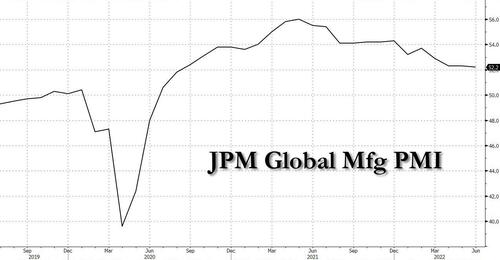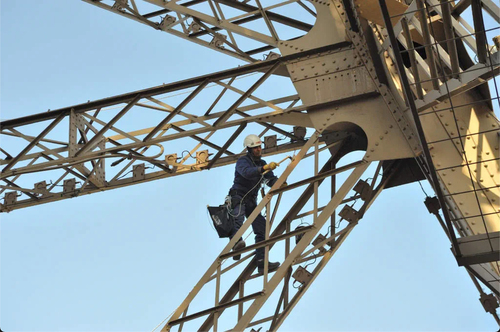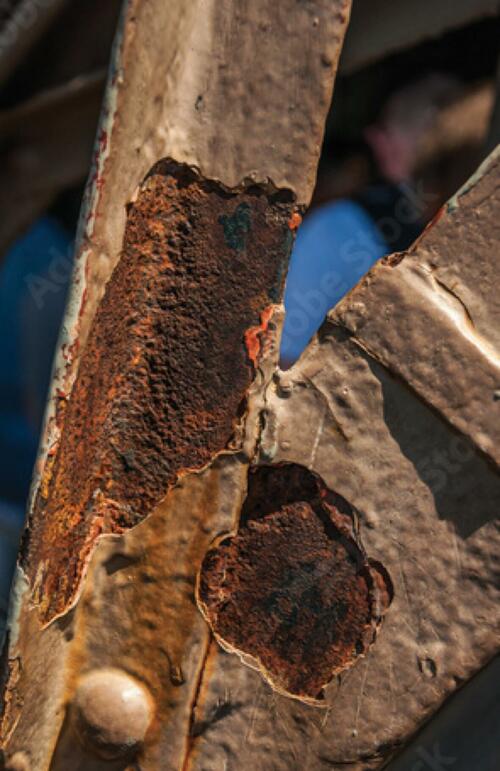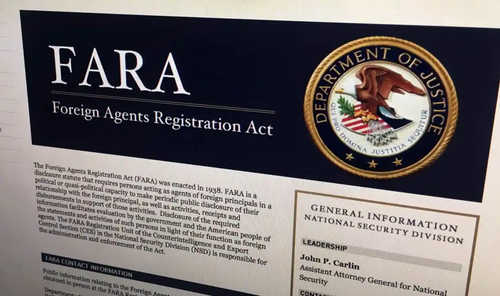
Alberto Gullaba Jr. was the type of author that publishers dream of having in their catalogs. A first-generation college grad, a child of working-class immigrants, and the recent recipient of a Master of Fine Arts degree from the prestigious University of California, Irvine, program, Gullaba was a debut novelist with a gift for visceral and vivid prose. His first book, University Thugs, had all the makings of a smash hit. A work of character-driven literary fiction steeped in immersive vernacular, it tells the story of a young black man named Titus who is trying to make his way at an elite university in the wake of a criminal conviction—all while the school is being rocked by racial scandals, not unlike the racial reckoning that consumed so many American institutions in the summer of 2020.
Gullaba’s agent knew he had something special, and he was excited for a big submission push. But on the eve of sending the manuscript out to publishers, the agent suggested Gullaba update his bio to emphasize his racial identity. Publishers, he reasoned, would be excited to support a young black writer fresh on the literary scene.
There was a problem: Gullaba is Filipino.
“We had never met in person,” he tells me, laughing. “I guess you can’t really judge who’s black or not based on a name like Alberto, and Gullaba is just ethnically ambiguous enough that it could be from Africa? I don’t know.”
What was clear, immediately, was that something had changed. The agent wasn’t excited anymore. Actually, he seemed downright nervous, and he started asking for significant changes to the manuscript.
“The guy’s frightened,” Gullaba says. “God bless him, that’s the reality of that world.”
At first, Gullaba was asked to add an Asian character—east Asian, specifically, perhaps a Pacific Islander. Then it was suggested that Titus’ wingman, the biggest secondary character, should also be assigned an Asian identity. And there was one more bizarre twist: Another agency employee, who we’ll call Sally, was brought in at the eleventh hour to read the book and provide additional feedback.
“My agent was like, ‘I don’t want to do this, it makes me very uncomfortable,'” Gullaba says. “But then he says it.”
Sally, the agent explained, was black.
Known as sensitivity readers, or sometimes authenticity readers, consultants like Sally are a growing part of publishing, hired to correct the pre-publication missteps of authors who don’t share the same traits—or “lived experience,” to use a favored buzzword—as their characters.
The sensitivity reader’s possible areas of expertise are as varied as human existence itself. One representative consultancy boasts a list of experts in the usual racial, ethnic, and religious categories, but also in such areas as “agoraphobia,” “Midwestern,” “physical disability, arms & legs,” and (perhaps most puzzlingly) “gamer geek.” Another one lists individual readers with intersectional qualifications: Depending on the content of your novel, you might hire a white lesbian with generalized anxiety disorder or a bisexual, genderfluid, light-skinned brown Mexican with a self-diagnosis of autism. Every medical condition, every trauma, every form of oppression: Sensitivity readers will cover it all.
Unsurprisingly, the rise of sensitivity readers has proved controversial. Those who support it insist that they’re no different from subject matter experts, not unlike the physician who proofreads a medical thriller to make sure the science is right. Critics, on the other hand, balk at the idea that being a member of a given demographic automatically conveys special knowledge about how everyone else in that group thinks or feels. (In Gullaba’s case, his sensitivity reader had been born in the Caribbean and raised in the U.K. The idea that she could speak to the “authenticity” of a young, black ex-convict’s experience at an American university was comical.) At a moment of ascendant identitarianism in so many institutions, sensitivity reading seems part of a larger, insidious trend in the arts: one that stigmatizes imagination and would, taken to its logical conclusion, make fiction itself categorically impossible.
Whatever else sensitivity readers are, they’re a recent development—born in the small but influential corner of the literary world known as young adult (Y.A.) publishing. The Y.A. literary scene has always been a reliable incubator for incoming moral panics, dating back at least as far as 1975’s puritanical spasm over sexual content in Judy Blume’s Forever…: It’s always been easy to get people amped up if you can invoke the specter of a vulnerable young person being harmed by a naughty book. In this case, you can see the seeds of the great media diversity eruption of summer 2020 in a Y.A. controversy from six years earlier.
In 2014, the same year Michael Brown’s death in Ferguson, Missouri, helped spark the first wave of the Black Lives Matter movement, a survey by the publisher Lee & Low revealed that just 10 percent of the books published for young readers included multicultural content. The Y.A. community was scandalized, and authors rushed to address the issue.
Suddenly, every other book deal announced that year seemed to involve a multiracial cast of characters repping the whole rainbow of sexual orientations, alternative gender identities, and physical and mental disabilities. But rather than solving the problem, the new enthusiasm for diverse characters fueled a new outrage: No matter how multiracial the characters, the authors were still a bunch of white ladies, as were the editors, the marketing folks, the designers, and the publicists. It was white people all the way down.
Publishing is a longtime bastion of liberalism, but it is also an elite profession, largely inaccessible to all but the independently wealthy (or at least those with the means to live in one of America’s most expensive cities on less than $40,000 a year). Between the notoriously low salaries and the limited opportunities for advancement, publishing houses had struggled for decades to attract and retain minority employees, a problem for which they were generally apologetic without ever embarking on the kind of bottom-up industry renovation that might actually fix it. But now they were being scrutinized by a new, young activist cohort—and the demands for change, amplified by social media, were starting to get loud.
Enter the sensitivity reader.
To understand why publishing would go all-in on a practice that not only interferes with an author’s creative autonomy but traffics in crude stereotyping to boot, you need to know one crucial fact about sensitivity readers: They’re cheap. The average cost of a sensitivity read is a few hundred dollars per manuscript, and it’s a freelance job. This made it a godsend to publishers who wanted to merely look like they were giving people of color a seat at the table but didn’t want to go to the trouble of buying all those additional chairs. Retaining a freelance stable of racial, ethnic, and sexual minorities created the appearance of diversity for a fraction of the cost.
Within the writing community, the practice was more complicated. In theory, sensitivity readers were a way to write outside your identity without causing offense by “getting it wrong.” But the emerging consensus, especially in Y.A., was that it was even more wrong to stray outside your lane in the first place. In a particularly revealing 2018 feature on the culture website Vulture, a sought-after sensitivity reader expressed profound contempt for the authors whose manuscripts she was paid to vet.
“These writers think they’re doing the world a service. Like, ‘Look at me, I’m showing up for the social-justice movement.’ But the problem is that they’re showing up and they’re taking a seat,” she said.
The implications were clear: If you were a white author writing black characters, you were taking up space that could have gone to a more deserving marginalized writer. If you needed a sensitivity reader, then was this really your story to tell?
These questions don’t serve as a deterrent for everyone. In the intervening years, sensitivity readers have become de rigueur—in young adult fiction, but also, increasingly, in work for adults. Sometimes a publisher will insist on this extra step; sometimes, a conscientious writer will seek it out on his own. The prevalence of the practice is more sensed than studied—there’s no data on what percentage of books go through this sort of vetting—and it’s highly variable depending on the writer’s own genre and community; the ultra-woke author of prestigious literary fiction is a lot more likely to request or receive a sensitivity read than, say, a hard-boiled crime novelist.
Those who put stock in sensitivity reads seem to mostly imagine that the practice offers a form of insurance, preempting allegations of this -ism or that -phobia, although it rarely pans out that way.
When The Men, Sandra Newman’s sci-fi novel in which everyone with a Y chromosome suddenly vanishes from the face of the earth, came under fire for what critics termed the “transphobic” implication that people with Y chromosomes are men, one of the chief questions was whether the author had engaged a trans sensitivity reader. But when Newman said that yes, she had, the outrage only multiplied. Why had she hired only one sensitivity reader? Did she think this was an excuse?
“That only makes it WORSE,” one commenter wrote, “because you’re claiming you KNOWINGLY did this.”
Indeed, not even the professionally sensitive are safe when a cancellation comes calling. In 2019, sensitivity reader Kosoko Jackson frantically pulled his own Y.A. debut novel after he was called out for setting a gay romance against the backdrop of the Kosovo War. (As is typical of these controversies, it’s hard to parse exactly what Jackson did wrong, but the complaints mainly focused on the offense of “centering” the wrong identity category—in this case, two American boys—in a story set amid a real-life tragedy that mainly affected people of another identity category.)
And yet, despite the rampant toxicity and the inconsistency in which books get canceled and why, some writers have come to see sensitivity reads as simply part of the process, a thing you do to check the boxes for both “good writer” and “good person.” (“Just got my sensitivity read edits back, and it was…eye-opening,” reads a recent, cheerful email from a friend who was self-publishing a Y.A. novel. “Turns out I’m your typically oblivious white man!”) And while I’ve never used sensitivity readers for my own work as a novelist, I have agreed to perform the service for someone else who wanted a woman’s perspective on a novel-in-progress—which ironically turned out to be exactly the sort of imaginative exercise that sensitivity readers are meant to obviate. My job was not to offer my take on the book, as a woman. It was to scrutinize the text from the perspective of a woman who was not me, someone far more sensitive and prone to taking offense than myself—a person whose perspective, thought, and feelings I could only imagine. But per the rules of sensitivity reading, I was allowed to do this, while the author, due to lacking the proper chromosomal and/or genital configuration, was not.
At the time, I felt the fundamental tension, even absurdity, inherent to what I was doing: suggesting edits that would take all the teeth out of the story, all for the sake of placating the type of person who would invariably just find something else to be offended by.
Sensitivity readers are still most prevalent in Y.A. publishing, but the ideology that fueled their rise is beginning to crop up elsewhere. Sensitivity reading is becoming more commonplace in adult books, as the belief that it’s dangerous to draw too far outside the lines of your own experience takes hold not just among authors but in publishing houses and media; one much-discussed 2019 article in Vulture interrogated 10 authors about the decision to write diversely, under the querulous headline, “Who Gave You the Right to Tell That Story?” Hollywood and academia are in the midst of similar spasms. Can a nondisabled actor be permitted to play Richard III? Does Scarlett Johansson have the right to take the role of gender-bending gangster Dante Gill from a more deserving, more authentic trans man? Can an academic study and publish on black urban feminist ideology if she’s neither urban nor black? Invariably, what begins as a call to consult with members of a given identity group before telling stories about them evolves into the suggestion that you should just sit this one out. Imagining the interior life of someone from another identity group? That’s appropriation. That’s literary blackface. That’s not yours.
In one recent controversy from north of the border, documentary filmmaker Barry Avrich used an award acceptance speech to make an urgent call for more black stories, saying, “It doesn’t matter who tells them; we just need to tell them.” The response was swift, and severe: “We absolutely agree with Barry when he says there are so many stories to tell, it’s just like, why are you the one that has to tell them?” quipped the executive director of Canada’s Black Screen Office.
At the moment, it’s unclear how obligatory all of this is at the major publishing houses. There are whispered rumors of this or that author having a contract canceled when a sensitivity reader declared the work unacceptable. (I tried unsuccessfully to get one of these writers to talk to me for this piece.) There was a first-person account from author Kate Clanchy, who parted ways with her publisher after concluding that her sensitivity readers only wanted to “create a book that would play better on Twitter, not one that is better written.” But given that it’s tantamount to outing oneself as the author of work too offensive to publish, those who have books canceled for “sensitivity” issues remain unlikely to say so publicly.
More broadly, the rise of sensitivity reading seems to reflect an obsession with policing language in service of a hypothetical person who is not only maximally sensitive but also not very smart. We’ve even seen the advent of the first artificial intelligence sensitivity reader, as Google Docs rolled out a new feature designed to help users tailor their work to be more “inclusive.” The results were amusingly disastrous; among other things, the bot repeatedly scolded writers for the publication Motherboard to consider changing the publication’s name. But the A.I. will eventually learn restraint, as long as users duly let it know when it’s overstepping. Human sensitivity readers, on the other hand, will surely be motivated to find increasingly esoteric forms of offense, in accordance with the very human desire to keep themselves in business.
In the meantime, we can be grateful for the constitutional rights that protect our written expression, because sensitivity reading reflects exactly the kind of sprawling, big-budget bureaucratic ethos that government actors would love to impose everywhere if they could: the love child of George Orwell’s fictional Ministry of Truth and Ibram X. Kendi’s fantasy Department of Antiracism, tasked with monitoring all public expression for expressions of wrongthink (though perhaps they’d call it “misinformation”).
The irony is that sensitivity reading is, in itself, an exercise in exactly the kind of offensive generalizing it purports to help authors avoid—not just in the way it traffics in crude stereotypes about how people of a given race, gender, or sexual orientation move through the world, but in whose interests it ultimately serves. This is a practice driven primarily by the fears of privileged editors, agents, and publishers, and that is who it protects, too often at the expense of the diverse authors whose work they claim to champion. Writers such as Alberto Gullaba Jr. are sidelined, sandboxed, scolded away from taking creative risks, by oblivious white people whose own imaginations can only extend as far as the next cancellation.
As for Gullaba, the quest to racialize every character in the book so that it matched the author’s identity eventually reached its inevitable conclusion when his agent asked him to make Titus Filipino.
“We’re playing this horse trading game, with races, with little woke beats,” Gullaba recalls. “Eventually he broaches the idea of, this needs to be your story. Your identity. The Filipino experience.”
In the end, he chose to release University Thugs independently and pseudonymously, in its original incarnation. (The book is now available on Amazon.) He is now at work on his second novel. If an agent suggests a sensitivity read, he intends to decline.
“Realizing it came from good intentions,” he says, “I want to be gracious, and politely and confidently refuse.”
The post Sensitivity Readers Are the New Literary Gatekeepers appeared first on Reason.com.
from Latest https://ift.tt/gdXw79Y
via IFTTT









